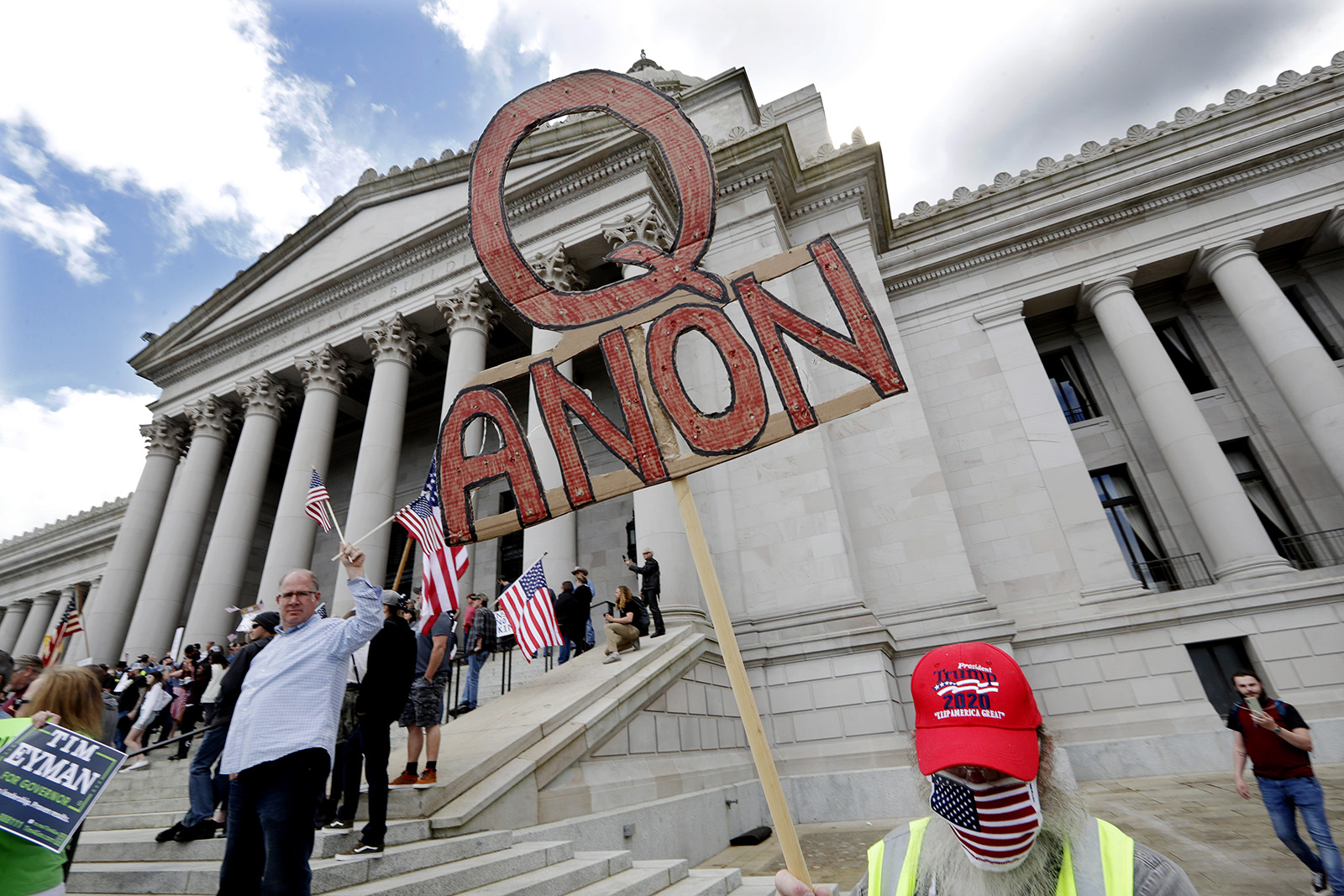
(RNS) — Eric Metaxas, the author of biographies of William Wilberforce and Dietrich Bonhoeffer, has proclaimed that Donald Trump won the 2020 election “in a landslide.” As a result, Metaxas forecasts, many will be imprisoned for attempting to steal the election, an attempt that he calls “the most horrible thing that ever happened in the history of our nation.” Thankfully, “Jesus is with us in this fight.”
When a reputed evangelical public intellectual exhibits this behavior, it’s worth asking about the state of the evangelical mind. Recent proclamations by other evangelical Christians suggest a propensity to believe conspiracy theories on the origins of COVID-19, nefarious purposes underlying the coming vaccines, the climate change “hoax” and Tom Hanks leading a global pedophile ring.
How should Christians committed to thoughtful cultural engagement respond? When QAnon followers populate our church pews, how do we avoid losing hope for the Christian principle of integrating faith and reason?
Evangelicals’ complicated relationship with conspiracy theories is probably not reducible to a single explanation, but reasons suggest themselves. A generation of evangelicals has been influenced by the wildly popular “Left Behind” series — end-times novels that used news headlines to fantasize about shady global networks. Conspiracy theories may appeal to white evangelicals as a way to make sense of a country that is less like them: less white, less rural, less old and less socially conservative.
RELATED: Eric Metaxas, Christian radio host, tells Trump, ‘Jesus is with us in this fight’
In any event, we cannot wait for the sociologists to sort out the root causes before responding to our fellow congregants who have begun waving “Q” signs, literally or figuratively. A few basic truths should underlie any strategy.
First, this will not be a quick fix. Trump’s willingness to entertain conspiracy theories may have contributed to his supporters’ eagerness to do the same, but this problem will not end with the Trump presidency. Critical discernment is not a light switch to be turned on and off at will; it’s a discipline to be cultivated. Christians who want to pull their fellow believers back from the conspiratorial worldview need to commit for the long haul.

A demonstrator holds a “QAnon” sign as he walks at a protest opposing Washington state’s stay-at-home order to slow the coronavirus outbreak April 19, 2020, in Olympia, Washington. Gov. Jay Inslee has blasted President Donald Trump’s calls to “liberate” parts of the country from stay-at-home and other orders that are designed to combat the spread of the virus. (AP Photo/Elaine Thompson)
Second, thoughtful Christians need to avoid categorical dismissals of mainstream media sources. Do many media organizations exhibit a liberal bias? Yes, but there is a difference between bias and an intent to promulgate lies instead of facts.
Attacks on reporters as the “enemy of the people” and sweeping pronouncements of “fake news” from high places have led many conservative Christians to replace traditional media sources altogether with YouTube videos and Facebook memes. We have rejected potentially biased sources in favor of sources that lack any quality control or editorial process; this is not a path toward a more accurate understanding of reality.
RELATED: QAnon: The alternative religion that’s coming to your church
Third, we need to reclaim God’s actual promises. Conspiracy theories are attractive because they help us feel in control. Rather than face a randomly occurring virus that is wreaking havoc on our lives, we see a grand battle against the forces of evil. Feeling in control of what’s happening in the world was never among God’s promises. Instead, he promises us himself, which should be all the assurance we need, even when the world feels completely out of control.
Fourth, we have to recognize the true stakes. When the world sees Christians as gullible, naïve and unwilling to do the hard work of critically evaluating information, we lose credibility on everything — including our assertions about the historical veracity of the gospel. When we post a meme about Dr. Anthony Fauci or Bill Gates plotting to distribute the mark of the beast through a vaccine, our following post about eyewitness testimony regarding the life of Jesus will get the same response as the first: This person is not trustworthy on questions that matter.
RELATED: Will the death of George Floyd sway white evangelicals on race?
Our minds are a gift from God. Like all good gifts, we are called to steward them wisely. As conspiracy theories infiltrate the church and compromise its witness, we can’t just roll our eyes as though we’re accommodating an embarrassing uncle who drops by for holiday dinners. The gospel speaks to the heart and the mind. If wild conspiracy theories find fertile ground among Christians, we shouldn’t just be scandalized; we should be motivated to reclaim the intellectual rigor of our faith.
(Robert K. Vischer is dean of the University of St. Thomas Law School in Minneapolis. The views expressed in this commentary do not necessarily reflect those of the university or Religion News Service.)
